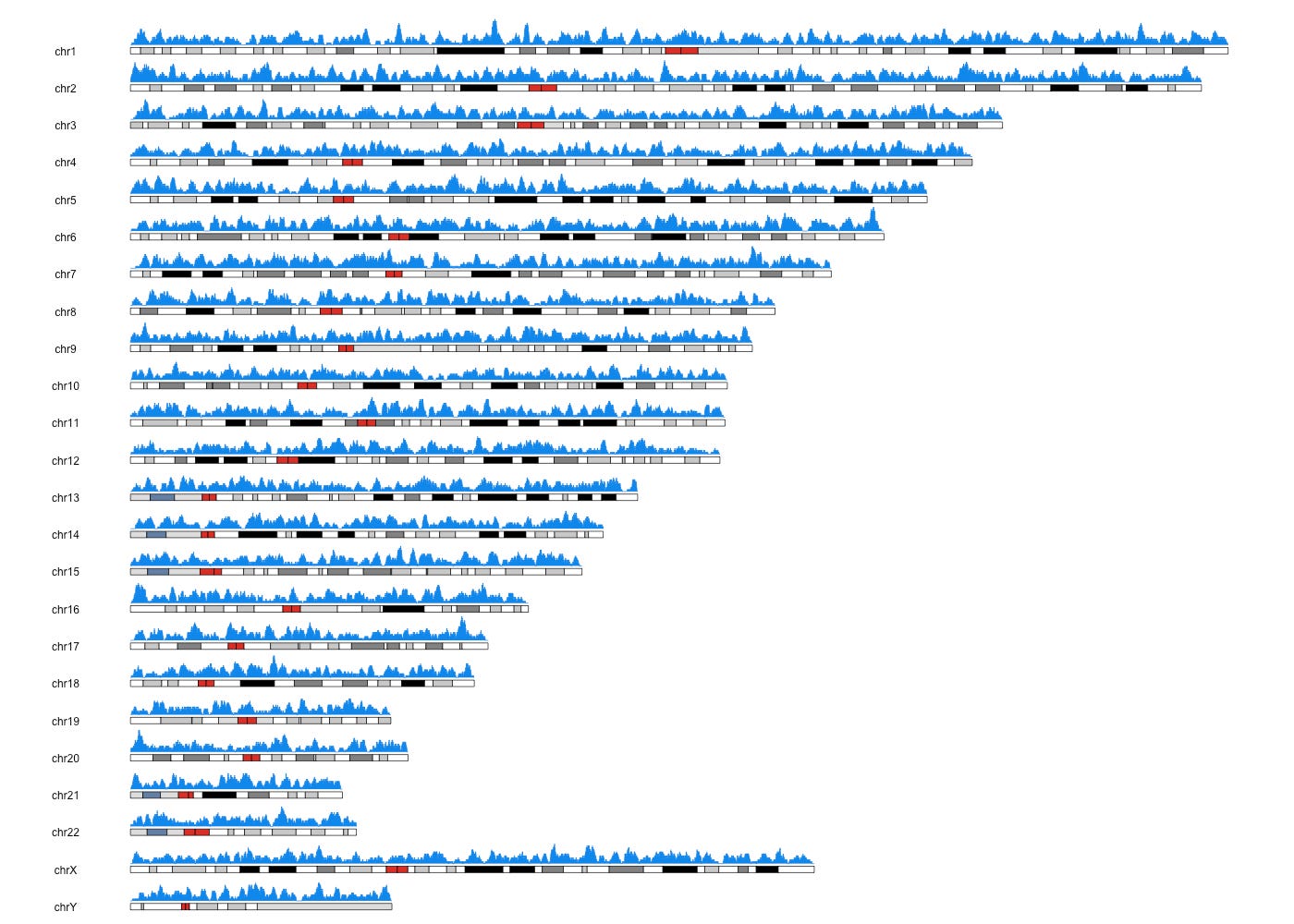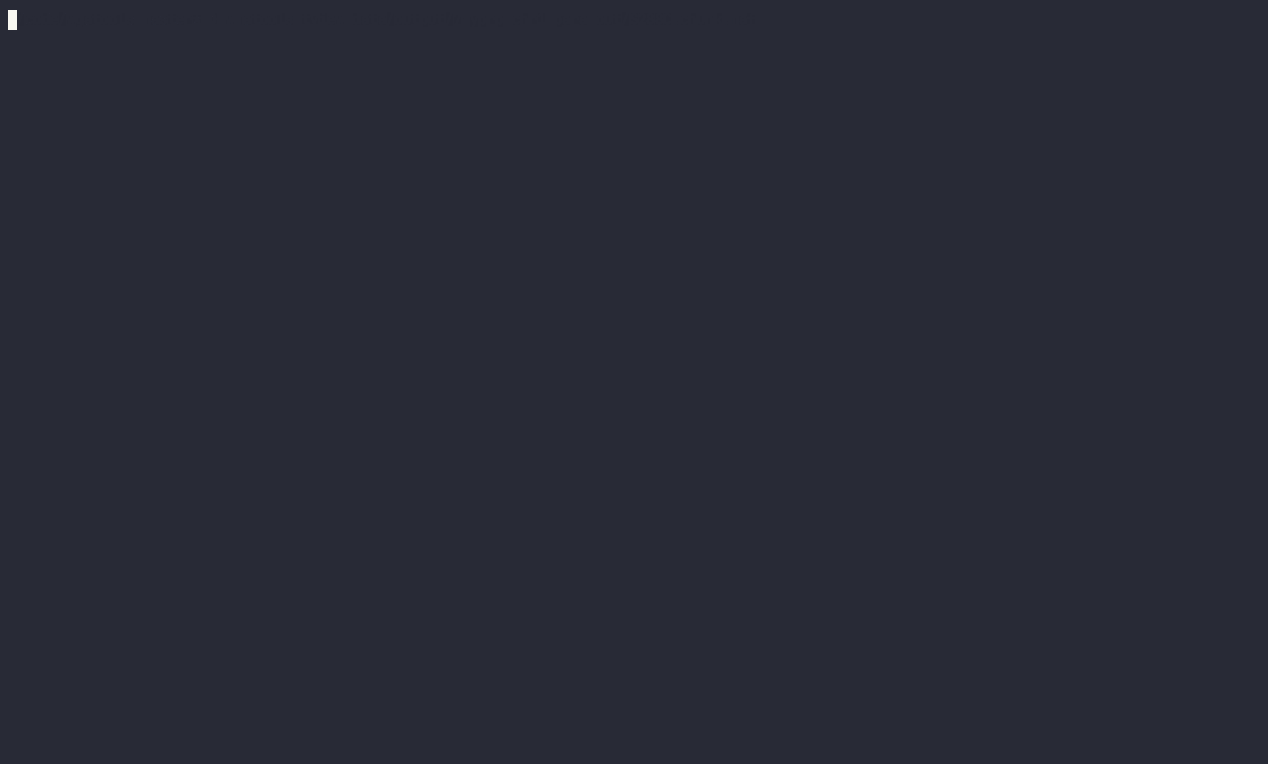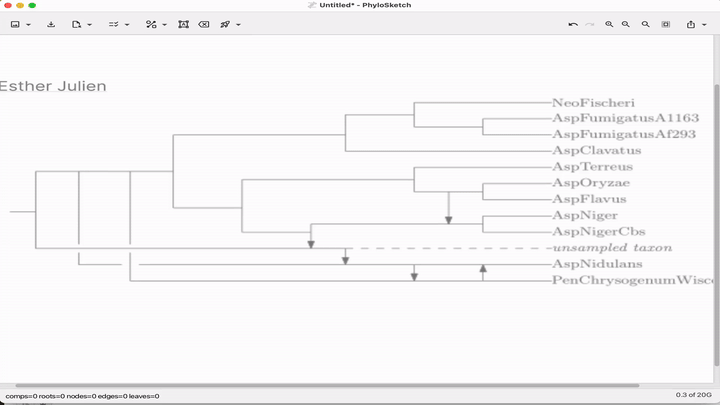Ever since Werner Heisenberg formulated the uncertainty principle, physics has been grappling with the unsettling realization that the universe does not function like clockwork—a metaphor Newton introduced and which held sway for centuries.
Rogue Scholar Posts

karyoploteR is an R package that’s been in Bioconductor for nearly a decade. It lets you create linear chromosomal representations of any genome with genomic annotations and experimental data plotted along them. Bioconductor : https://bioconductor.org/packages/karyoploteR/ Tutorial : https://bernatgel.github.io/karyoploter_tutorial/ Paper : Bernat Gel & Eduard Serra. (2017).

This week’s recap highlights the Rust-based wgatools for manipulating alignments and visualizing in the terminal, the nf-core scnanoseq Nextflow pipeline for ONT scRNA-seq, sawfish for better SV discovery and genotyping with long reads, the BINSEQ high-performance binary formats for nucleotide sequence data, and a unified analysis of atlas single-cell data.
Durante el semestre 2026-1 existe la opción de tomar el curso que impartiré en la carrera de Matemáticas Aplicadas de la Facultad de Ciencias de la UNAM. Modalidad: virtual Material : computadora o laptop, cámara, micrófono e internet Día y hora : Lu-Vi 18:00 a 19:00 hrs Asistencia : 90% indispensableCaracterísticas: Curso activo enfocado en la investigación y el uso de bioinformación, bioliteratura y biodatos.

I originally wrote and published this essay at The Connected Ideas Project, an excellent newsletter by my good friend and colleague Alexander Titus. If you’re not reading TCIP you’re missing out. After I finished my postdoc I was faculty in academia for eight years before moving to a consulting firm for five years, then joined a biotech startup two years ago.

This week’s recap highlights the new Datavzrd tool for interactive visualization and communication of tabular data (I’m genuinely really looking forward to trying this one), tracing the shared foundations of gene expression and chromatin structure, PISA for visualizing cis-regulatory rules in genomic data, fast protein structure searching using structure graph embeddings, and a review/perspective on intrinsically disordered regions as

This is part 4 of a series on uv. Other posts in this series: uv, part 1: running scripts and tools uv, part 2: building and publishing packages uv, part 3: Python in R with reticulate I’ve never been a big fan of notebooks, and I’m not the only one. Out of order code execution, hidden state, difficulty diffing in version control, output bloat, etc.
Four months after my open letter calling on the Royal Society to take action over Elon Musk FRS’s breaches of their code of conduct had attracted thousands of signatures from the scientific community, but only a very muted response from that most learned organisation, I was beginning to think I should let the matter go. After all, Musk is no longer part of the Trump administration, his relationship with the president

One of my previous employers was a Google Cloud partner, which gave me full and free access to all of Google Cloud’s certification programs, where I took the Professional Cloud Architect and Professional Data Engineer programs. It shouldn’t surprise anyone that with Google leaning hard into GenAI that they have new certification programs and learning paths, like this Generative AI Leader certification.

This week’s recap highlights PhyloSketch for interactively drawing and manipulating phylogenies, Uncalled4 for nanopore DNA and RNA modification detection, Severus for SV calling from long reads, CREsted for modeling synthetic cell type-specific enhancers, and a review on transformers and genome language models.
It’s plot recreation time! In this post, we’ll look at how we can recreate a plot in R. I thought it might be useful to provide the solution but also to detail the process I went through to get there. We have a FACS plot taken from a BD FACS Aria machine: Briefly, it’s a histogram of the fluorescence levels of 10000 cells from three different sources.